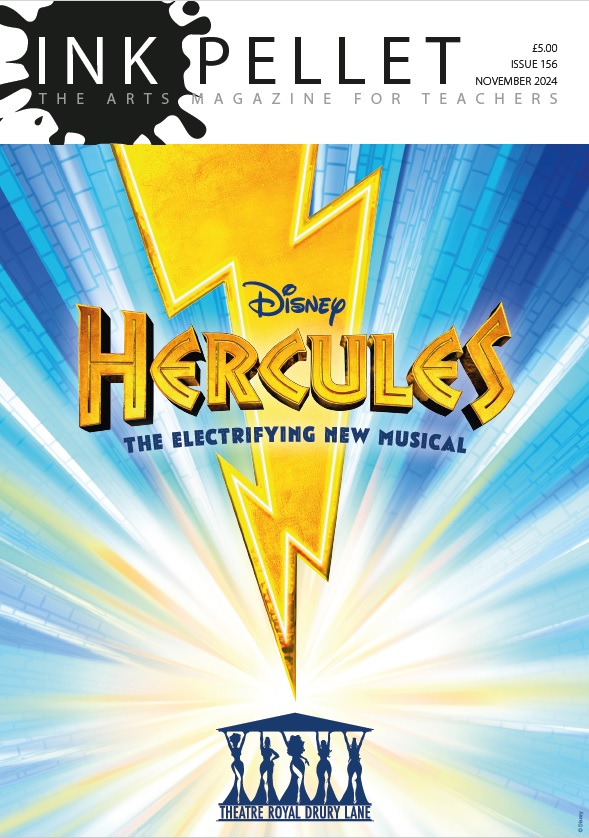In 2013, Hull was announced as the UK’s next city of culture. As the year begins its final season of programmes and events Mark Glover explores the work of Hull Truck Theatre and looks back on some of the year’s theatrical highlights.
A few cynical eyebrows were raised when Hull was named the UK’s 2017 city of culture. Known for shipping and rugby league, the Yorkshire city has so far proved critics wrong by serving up twelve months of wonderful art, theatre and music.
Divided into four themes or seasons, the year began with a ‘Tell the World’ thread; three months of exploring the city, its history, people and industry. From April to June, the angle was ‘Roots and Routes’; an acknowledgement to the city’s port heritage and its position as a gateway to Europe, touching on notions of movement and migration. Conversely, virtual movement via a click on a browser is just as resonate and a digital element also formed part of that season.
The festival has just come out of its ‘Freedom’ theme, which ran from July to September. Inspired in part by Hull’s role in the emancipation movement, and especially Hull resident William Wilberforce, who in 1892 successfully campaigned against slavery.
Just as important as the year itself is the legacy of the festival. The final season, ‘Tell the World’ celebrates the previous 12 months but also looks to the future, consolidating but growing and developing on what’s been established.
Drama and performance and in particular the city’s Hull Truck Theatre has formed a strong part of the festival. Regardless of the celebrations, the venue has constantly promoted modern and contemporary theatre to the people of Hull and beyond, and aimed innovative outreach projects to its communities. This year however, the company commissioned and created several special shows inspired by the city and the people from it. Mark Babych, the theatre’s Artistic Director introduced the season at the beginning of the year saying, “We have programmed a year of ambitious and exceptional drama, telling powerful human stories which resonate with our city and beyond.”
“Their contribution to the UK’s theatrical landscape is immense, and they place a powerful Northern voice at the heart of their work”
One such example took place in June. Mighty Atoms, a play inspired by the true story of Barbara Buttrick, a female boxer from Hull in the 1950. The piece, which has an all-female cast, is set in a tough part of the city at a women’s boxing club where they women battle not just their opponents but also life outside of the ring.
The play encapsulates the city’s resilience and battles within certain constraints that females experienced not only in the 50s but also today. Playwright Amanda Whittingdon sees the parallels. “It (Barbara’s boxing career) was an extraordinary act of resistance to prejudice, she told the Hull City of Culture website. “Her spirit, courage and sheer bloody-mindedness were a tremendous inspiration. I wanted to trace this through to present-day Hull, where women are fighting different battles with the same spirt.”
Another drama and performance highlight was Hull’s most famous theatre company, Northern Broadsides, who joined forces with Hull Truck to produce a special version of Richard III. Shakespeare’s play was the first performance that Northern Broadsides gave when it began in 1992 and this special year gave them the opportunity to celebrate 25 years of their very Northern brand of theatre making. The play’s themes meant that it fitted smoothly into the city’s ‘Roots and Routes’ season. Hull Truck’s Mark Babych summed up the company’s importance nationally and locally in a quote to the Hull 2017 site. “Their contribution to the UK’s theatrical landscape is immense, and they place a powerful Northern voice at the heart of their work,” he said.
Hull residents wouldn’t think I was being amiss if I said that world premieres are not common in the city but in March, Hull Truck presented for the first time globally, Richard Bean’s play The Hypocrite. Supported by the Royal Shakespeare Company, the cast included Caroline Quentin and Richard Addy and became the theatre’s fastest selling show ever.
Six months into the year, a report was published showing visitor statistics to the various events and venues across the city. One statistic was particularly eye-catching: Of all the people who booked to see The Hypocrite at Hull Truck, 38 per cent were new audience members to the theatre.
It seems that the legacy is already working.
The Hull 2017 city of culture finishes in December. There are various initiatives that teachers and schools can still get involved in. Go to https://www.hull2017.co.uk/guides/parents-teachers-youth-workers/ for more information and resources.



